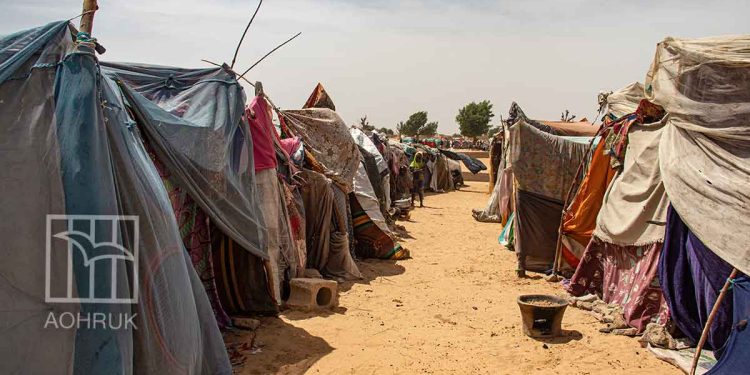In a blatant disregard for fundamental human rights and international humanitarian law, the United Nations Children’s Fund (UNICEF) has issued a warning that the escalation of fighting in the Zamzam camp for displaced people in El Fasher, North Darfur, Sudan, puts hundreds of thousands of children in danger.
“Hundreds of thousands of children are at risk as fighting escalates in El Fasher and Zamzam camp and their surroundings in North Darfur state,” UNICEF said in a brief statement released through the “X” platform.
The humanitarian situation in the camp is rapidly worsening due to the lack of food and medicine, which is a violation of international laws that guarantee the protection of civilians during armed conflicts. Attacks on El Fasher and Zamzam camp have intensified, putting civilians in the camp at risk of shelling and starvation as a result of the siege imposed on the area.
Despite international warnings that the city could become a battlefield, endangering the lives of hundreds of thousands of civilians and hindering humanitarian relief efforts, Al-Fasher has seen a risky military escalation between the Sudanese army and the Rapid Support Forces since May 10, 2024.
Since mid-April 2023, Sudan has been embroiled in a brutal conflict between military factions that has claimed over 20,000 lives and left approximately 15 million displaced and refugees, according to estimates from the UN and local authorities. However, research from American universities has put the death toll at around 130,000.
According to the terms of the Geneva Conventions and the United Nations charters, the ongoing abuses against the displaced, particularly in Darfur, may constitute crimes against humanity and war crimes, necessitating the launch of impartial international investigations and the prosecution of those responsible.
The humanitarian situation in Darfur is getting worse due to the ongoing international silence and reluctance to take decisive action to protect civilians. This is reminiscent of the crimes that have occurred in the region over the past 20 years, the consequences of which are still felt today.


























